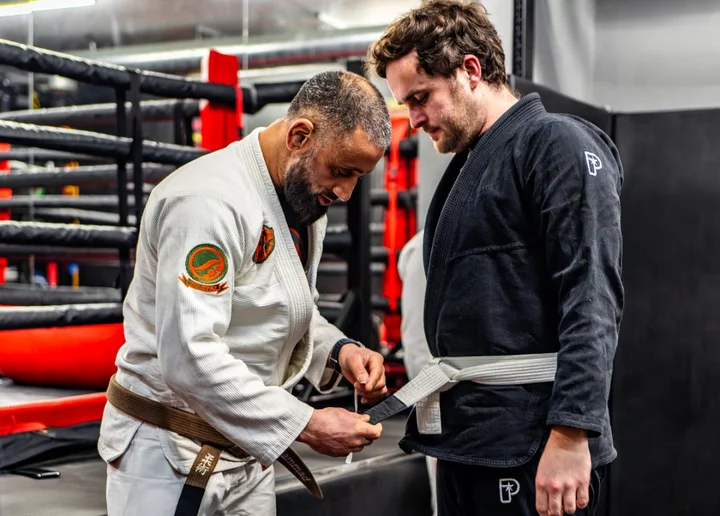
Voices: I’m a tech nerd who does jiu-jitsu. I know exactly why Mark Zuckerberg wants to fight Elon Musk
Mark Zuckerberg and I have very little in common. My bank account is much smaller, and nobody would ever be tempted to make a film about my life. But we do share two very important things: we're both tech nerds, and we like putting on pyjamas and having people pretend to kill us. Like Mark Zuckerberg – and now Elon Musk, who he is planning to fight in what would be the world's biggest MMA match – I am a relatively recent convert to Brazilian jiu-jitsu. And like Mark Zuckerberg, I have found that it has improved my whole life, and changed who I am. My own journey with BJJ began in typically nerdy fashion: my partner described it as "human chess", which was enough to make me intrigued. I joined a local gym, 313 Fitness, in London's Manor Park, about a year ago. Initially, I was confused by the complexities of the sport – the "gi" kimono that you wear, the complex positions you're required to get into, the various kinds of rolls and handstands that you do to warm up – but they quickly became both everyday and absolutely thrilling. This is the game of jiu-jitsu: the winner is the person who makes the other submit, by placing them in a position that would lead to their joints being broken or putting them to sleep. This might sound grisly. In some ways it is. But in that violence can be found some of the most important lessons I have learnt in my life – it is an experience that teaches you invaluable lessons about the world, other people, and yourself. The thing that first becomes clear about jiu-jitsu is that you cannot be thinking about anything else. There is no time for anxious overthinking when someone is sat on top of you, trying to break your arm. If you let your attention drift, your opponent will use it to their advantage; losing focus for a moment can mean losing your fight. It's probably obvious how this applies to the rest of your life. But even in the moment there is a brutal thrill in training your focus in this way, and facing painful consequences if you don't. It is a particularly unsparing kind of mindfulness, which teaches you just how valuable your own attention span is. The raw demand on your attention is just one of the very primal parts of the sport. There is a harsh simplicity in the rules of jiu-jitsu: your opponent wants to submit you, and you want to submit them. But at the same time, it employs its own very specific and particular logic. It is a game of leverage, of positioning, and of anticipating the movements of a person who is right on top of you. As with chess, the best players are not thinking about the thing in front of them, but the thing that is coming a few moves down the track. And just like with chess, the winner is the person who can exploit their own strengths, even if they are in a weaker position. This pitiless logic is perhaps the reason that BJJ has proven so appealing to poindexters: Zuckerberg and Musk are far from alone in the sport, and one of its leading lights is Mikey Musemeci, an athlete who calls himself "Darth Rigatoni" and has happily referred to himself as a nerd. Jiu-jitsu might punish overthinking, but it is a profoundly thoughtful martial art. It is a humbling one, too; jiu-jitsu is actively destructive to any sense of pride. Starting as a beginner means literally being forced to submit to another person, something that happens repeatedly even as you become better at the sport. Without the humility to tap, you can find yourself with a broken arm, and it is only through repeatedly submitting to better opponents that you will learn from them. You very quickly realise that having too much ego will hold you back. All of that means that it is also the ideal situation to make human connections: it's hard to feel shy or aloof after someone has thrown you around, and humbled you by making clear that they could put you to sleep if you wished. My gym, 313 Fitness, is just as important for the physical challenge it gives me every couple of days as it is for the collection of local friendships and guidance I receive in each of those sessions. On its mats, I have made friends and found wisdom of a kind that I would not have discovered anywhere else. There are few cures for loneliness like having someone in pyjamas squish you. And there aren't many more important things to learn that the importance of humility, of focus, of finding your own strengths and weaknesses and the hard work required to deal with them. Jiu-jitsu can change you profoundly, reshaping the way you see yourself and the world. Don't let Mark Zuckerberg ruin it for you. Read More Keke Palmer’s boyfriend isn’t the only one who should stop telling women how to dress The work on men’s issues is happening, but who’s been listening? | Elliott Rae Editorial: The BBC should remain as an independent institution Musk, Zuckerberg and the bitter battle for the future of social media Twitter threatens legal action against Meta over its new rival app Threads I tried Mark Zuckerberg’s Twitter rival, Threads – I’m not impressed
2023-07-09 19:16
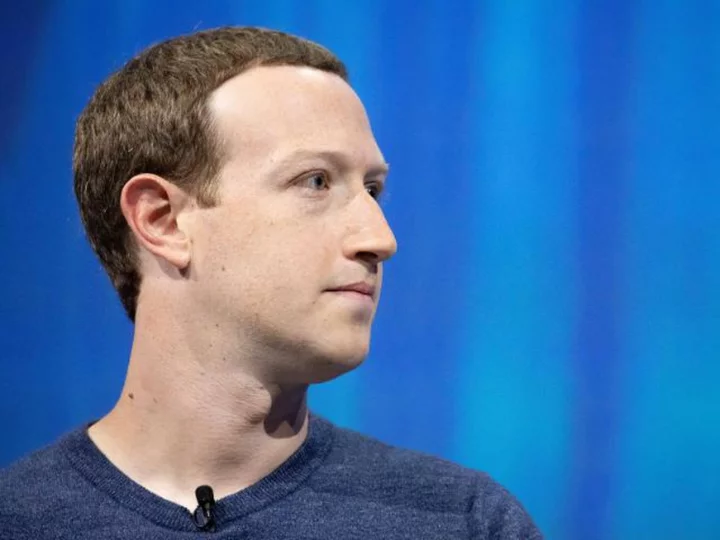
Mark Zuckerberg concealed his kids' faces on Instagram. Should you?
When Mark Zuckerberg shared a photo on Instagram of his family on July 4, two things stuck out: the billionaire CEO wore a striped souvenir cowboy hat, and the faces of his children were replaced with happy face emojis.
2023-07-09 17:04

How tech could turn our homes into renewable energy power stations
In 1866, Napoleon III was presented with a solar-powered device that its inventor claimed could provide inexhaustible energy. The Emperor of France was so impressed by Augustin Mouchot’s Solar Concentrator that he granted the maths teacher funding to continue its development. The success of Mouchot’s invention – which was the size of a small house – meant solar energy started to be taken seriously as a potential alternative to coal, and scientists got to work on improving and adapting the technology for residential applications. Within a few decades, thousands of homes across the US were fitted with solar water heating systems that could heat homes, warm food and wash clothes, however the oil boom in the 20th century saw the popularity of clean energy collapse. It took until the 1973 oil crisis and soaring prices for solar to regain mainstream attention, and 50 years of technological advances later we may now be on the cusp of realising the revolutionary potential seen by the early pioneers of renewable energy. Recent breakthroughs have made solar panels both cheaper and more efficient, while researchers claim to now be close to creating commercially viable alternatives that could transform homes into fully self-sufficient power stations. These new technologies are finally making it possible to move away from traditional energy reliance, transforming the concept of living off-grid from an alternative lifestyle choice to a realistic solution for a sustainable future. So what are these new technologies, and what might a solar-powered home look like in the next few years? Photovoltaic windows The off-grid solar market is predicted to be worth $394 million by 2030, but this may be a low estimate if solar-powered windows finally break into the commercial market. Last year, a team from École Polytechnique Fédérale de Lausanne in Switzerland achieved a new efficiency record for dye-sensitised solar cells (DSCs), opening up new commercial possibilities for see-through solar panels. The transparent properties of DSCs make them suitable for use in windows, greenhouses and glass facades, offering a theoretical price/performance ratio that is capable of competing with fossil fuel electrical generation. Photovoltaic windows have already been installed in the SwissTech Convention Center, but the latest efficiency record could precede a much wider spread roll out. Solar-powered paint The Sun beams enough energy to Earth in just one hour to power the whole planet for an entire year, yet less than 10 per cent of the global electricity supply comes from solar energy. One of its limitations is that solar panels require roofs or available land – but what if it was possible to transform entire buildings into electricity generators? Scientists claim that solar paint could achieve this at a relatively low cost in the near future. The technology involves photovoltaic quantum dots that capture light and turn it into electric current. Theoretically, these dots could be 11 per cent more efficient than traditional solar panels. A longer-term prospect is spray-on solar cells that use a liquid form of the so-called miracle material perovskite, which researchers at the University of Sheffield say could be used in “practical mass applications” in the coming years. Combined with solar windows, the technology could mean that every single surface of a building that is touched by the Sun could generate power. Solar trees and battery breakthroughs There are more than a million acres of private gardens in the UK, according to the Office for National Statistics, though the space taken up by solar panels currently make them an unpopular option for most homeowners. UK startup SolarBotanic Trees is aiming to change this with a bio-inspired design that features a shaded canopy with integrated seating, heating and outlets. Speaking to The Independent earlier this month, SolarBotanic Trees chief executive Chris Shelley said the first installations are already planned in Oxford next year. “The idea is to put solar panels on a domed surface like the canopy of a tree, and then place a battery storage system in the trunk,” he said. “The trees could go in people’s gardens to supplement rooftop solar panel setups, or several of them could even meet the annual electrical requirement of a medium-sized house.” The solar trees address the need for battery systems that can continue to supply power when the Sun is not shining. Several companies already offer battery packs for homes, most notably Tesla’s Powerwall that has been installed in more than half a million homes around the world. At Tesla’s Investor Day event earlier this year, the company projected that it will take $10 trillion to achieve a “sustainable energy civilisation”, but will require less than 0.2 per cent of the Earth’s surface to achieve. Renewables expert Dr Brian Azzopardi believes the “remarkable pace” of battery and solar advances over the last few years means individuals can already reduce their dependence on energy grids and look towards a more sustainable way of living. “It has revolutionised the renewable energy sector and opened up unprecedented opportunities for individuals to become increasingly self-sufficient with their energy needs,” Dr Azzopardi, who chairs the Foundation for Innovation and Research at the Malta College of Arts, Science and Technology, tells The Independent. “As battery technologies continue to evolve, becoming more affordable and efficient, the possibility of achieving a self-sufficient lifestyle ‘off-the-grid’ becomes increasingly feasible for a wider range of people.” How long until we see off-grid solar homes on a significant scale? In the same way that some developing countries and communities skipped landlines and went straight to mobile phones, it may be communities with no access to a power grid that benefit most from the emerging technology. One startup targeting under-served markets is Zola Electric, which offers “electrical infrastructure in a box” for places without power. It involves a solar panel and battery setup capable of powering a home, with company CEO Bill Lenihan describing it as a “game-changer” for the roughly 3 billion people living without affordable or reliable energy. “Our solutions are installed in homes, businesses, schools and hospitals in 10 countries across four continents, serving over two million customers,” he told The Independent. “They deliver distributed, clean, digital energy solutions for those that need it most.” For developed countries, achieving self-sufficient living with clean energy first requires electrifying all energy – from gas stoves to fuel-powered cars. Mark Jacobson, a professor of civil and environmental engineering at Stanford University, says that recent technological advances and incentivised roll-outs mean it already makes economic sense to transform homes into renewable power stations. “Costs have declined so much in recent years, and tax credits are so abundant, that most homeowners can readily install home solar and battery systems,” Professor Jacobson, who detailed how he made the transition in his 2023 bookNo Miracles Needed: How Today’s Technology Can Save Our Climate and Clean Our Air, told The Independent. “I don’t pay any energy bills, generate 120 per cent of the electricity I consume – selling the rest back to my utility – and have paid back the entire solar plus battery system in six years. My energy is free for the next 25 years.” Read More Electric car drives for 100 hours non-stop on futuristic road Massive mineral deposit discovery could meet global battery and solar panel demand ‘for next 100 years’ Geothermal power: Clean energy beneath our feet that could help UK ditch fossil fuels ‘It’s like having your legs broken’: What it’s like to fly as a disabled traveller In the battle of authors vs robots, the entire craft of writing is at stake
2023-07-08 14:59

London Is Falling Down and It's Because of Climate Change
Britain’s increasingly extreme weather is shaking the very foundations of its centuries-old history. The nation has been experiencing
2023-07-08 08:30
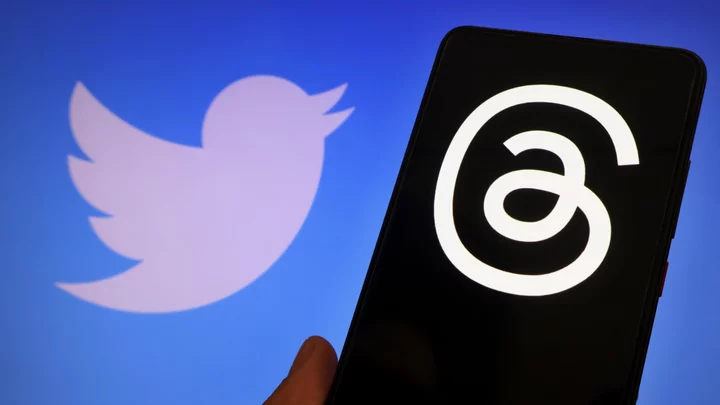
Threads: We Don't Need Hard News or Politics on Our Platform
As Twitter has become a platform for news and heated political debate, rival upstart Threads
2023-07-08 05:14
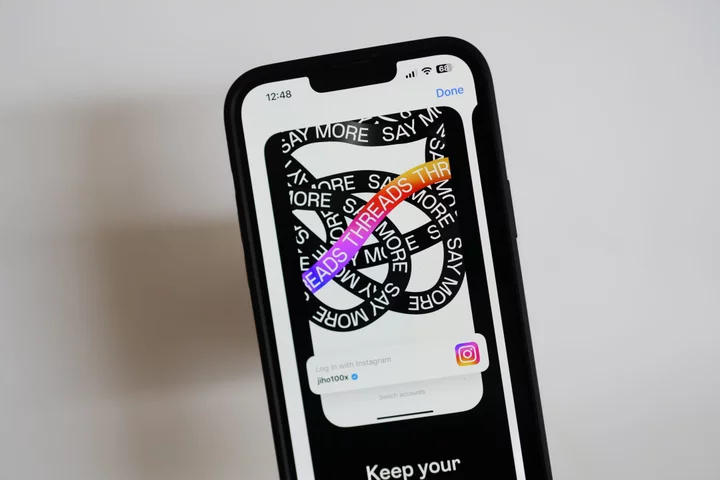
Meta’s Threads App ‘Positive’ Vibe Tested by Users Known for False Claims
Since Meta Platforms Inc. launched Threads on Wednesday, millions of users have joined the new social platform that
2023-07-08 04:42
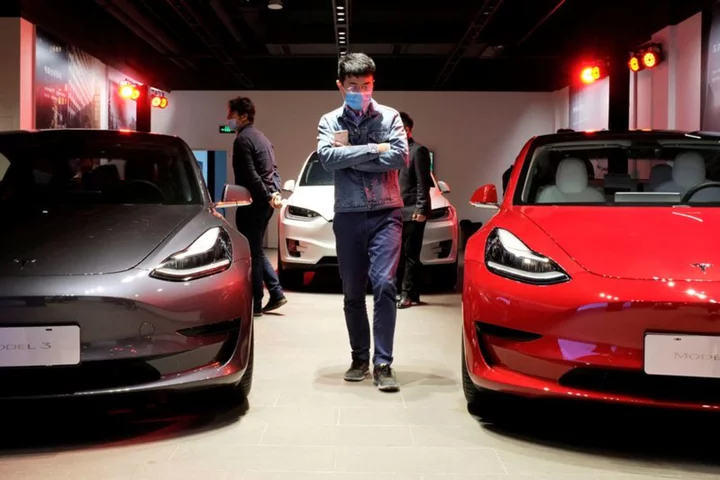
Tesla wants EPA to finalize tougher vehicle emissions rules
By David Shepardson WASHINGTON (Reuters) -Tesla wants the Biden administration to finalize more stringent vehicle emissions limits than those proposed
2023-07-08 01:52
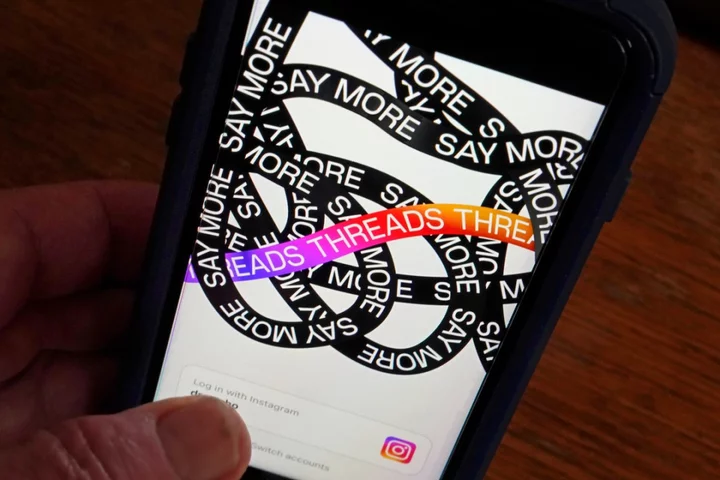
Threads: Instagram boss says it will fix major problems with app, including using multiple accounts and feed
Instagram’s team is working on a number of updates for its new Threads app, its management has said. Meta launched Threads – a Twitter rival that is built by the Instagram team and uses its branding – late on Wednesday. It has already gained some 70 million users, capitalising on chaos and technical problems at Twitter. But it is still without a number of major features, including those that are readily available on Twitter. The head of Instagram, Adam Mosseri, has been responding to users on the Threads app itself promising that a number of those features are coming. Chief among them is the option to change between accounts. Even though Threads is a separate app from Instagram, users must sign up with an Instagram account – which is then stuck signed in, without the option to quickly switch between other accounts. Mr Mosseri said that and many other additional features were being worked on by its team. Those other tools including a devoted desktop version, better search and hashtags, and better integration between Threads and Instagram so that posts can be shared between the two. But perhaps the biggest request has been for a chronological feed that includes posts only from those accounts that a user actually follows. At the moment, Threads is built around one news feed that is filled with algorithmically chosen content, much of which comes from accounts that a user has not explicitly chosen to subscribe to. Mr Mosseri said that was being worked on, and could arrive in the “next couple weeks”, but it was not necessarily a priority. “I do think a lot of why people are getting so much engagement right now is because you don’t need to follow a bunch of people in order to discover a bunch of new accounts in feed,” he wrote. Threads has ruled out some expected changes, too. That includes direct messages, with Mr Mosseri suggesting that he did not want to give users another inbox to check, with Meta already offering a number of other messaging platforms. Both Mr Mosseri and his boss, Mark Zuckerberg, have ruled out any rush to put ads into Threads. Mr Zuckerberg said that the site would decide on ads when the app was moving towards a billion users, and that for now the company was working on getting even more scale. Read More Threads hits 70 million sign-ups on its second day People are realising something really worrying about Threads Twitter threatens legal action against Meta over new ‘Threads’ app
2023-07-08 01:19
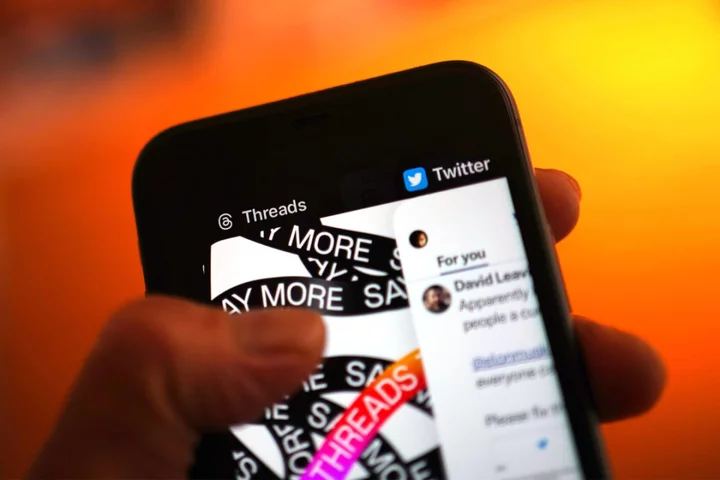
Threads: Instagram app reaches 70 million sign-ups as it hurtles towards the size of Twitter
Threads, Instagram’s new Twitter rival, has now hit 70 million sign-ups, parent company Meta has said. The app is now easily the fastest-growing app in the world, and has seen the fastest growth of any app ever. That position was originally held by ChatGPT, but it took a couple of months for that app to reach 100 million users. It also means that Threads is well on its way to the size of Twitter, its rival. That app had 229 million monthly active users in May 2022, according to a statement made before Elon Musk’s buyout latest last year. Meta revealed the latest sign-up numbers as it looked to highlight high-profile early adopters, including Selena Gomez, Khloe Kardashian and Lewis Hamilton. It did not reveal how many posts had been made on the site, though that is already likely to be in the hundreds of millions. Meta launched Threads – which uses Instagram branding and borrows accounts from the platform – late on Wednesday. Since then it has been growing quickly, with the number of users seemingly doubling every few hours. Dubbed as the “Twitter-Killer”, Threads was the top free app on Apple’s App Store in the UK and US on Thursday. Its arrival comes after Meta chief executive Mark Zuckerberg and Twitter’s Musk have traded barbs for months, even threatening to fight each other in a real-life mixed martial arts cage match in Las Vegas. “The cage match has started, and Zuckerberg delivered a major blow. In many ways, it’s exactly what you’d expect from Meta: Stellar execution and an easy-to-navigate user interface,” Insider Intelligence principal analyst Jasmine Enberg said. Twitter responded on Thursday by threatening to sue Meta, according to the publication Semafor, citing a letter delivered to Zuckerberg by a lawyer for Twitter. Twitter was not immediately available for comment. Reuters could not immediately verify the Semafor report. Meta said no one on the Threads engineering team is a former Twitter employee. Numerous competitors to Twitter have sprung up following Musk’s $44 billion purchase of the social media platform last year, which was followed by a series of chaotic decisions that have alienated both users and advertisers. Musk’s latest move involved limiting the number of tweets users can read per day. Twitter’s stumbles make room for a well-funded competitor like Meta Platforms, analysts and experts said, particularly because of its access to Instagram users and its advertising strength. “Meta’s release of Threads came at the perfect time to give it a fighting chance to unseat Twitter,” said Niklas Myhr, professor of marketing at Chapman University, referring to the turmoil at Twitter after it limited the number of tweets users can see. “Threads will be off to a running start as it is built upon the Instagram platform with its massive user base and if users adopt Threads, advertisers will be following closely behind.” Other competitors have found limited success. Mastodon, another Twitter-like app, has 1.7 million monthly active users, according to its website, while Twitter co-founder Jack Dorsey-backed Bluesky has about 265,000 users. Read More People are realising something really worrying about Threads Twitter threatens legal action against Meta over new ‘Threads’ app Meta responds to Musk’s threat as Threads becomes most rapidly downloaded app Musk, Zuckerberg and the chaotic fight to succeed Twitter Kim Kardashian, Rylan Clark and Dalai Lama among those joining new app Threads Threads is already more than three times bigger than every Twitter rival combined
2023-07-08 00:43

Shipping Regulator Falls Short of 1.5C-Aligned Climate Goals
Shipping’s international regulator set non-binding emissions goals that fail to align with restricting global warming to 1.5 degrees
2023-07-07 23:44
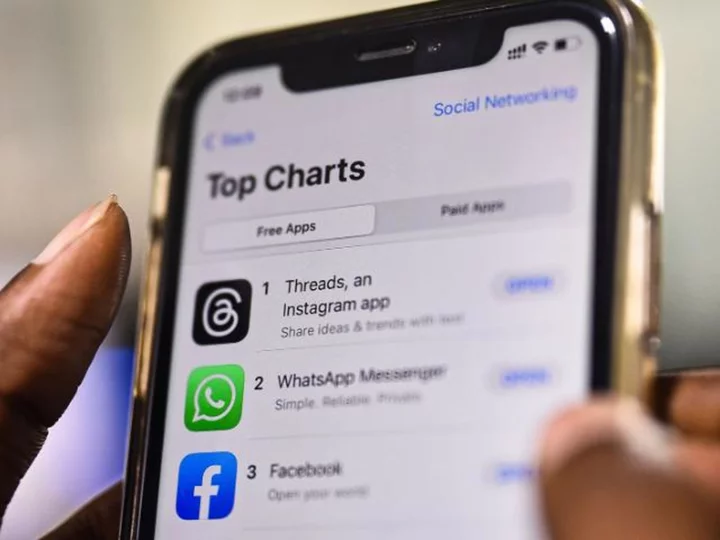
Meta could become even more dominant in social media with Threads
In the first 24 hours after Threads launched, Meta's Twitter rival has surpassed 50 million sign-ups, upended the social media landscape and appears to have rattled Twitter enough that it is now threatening legal action against Meta.
2023-07-07 23:38
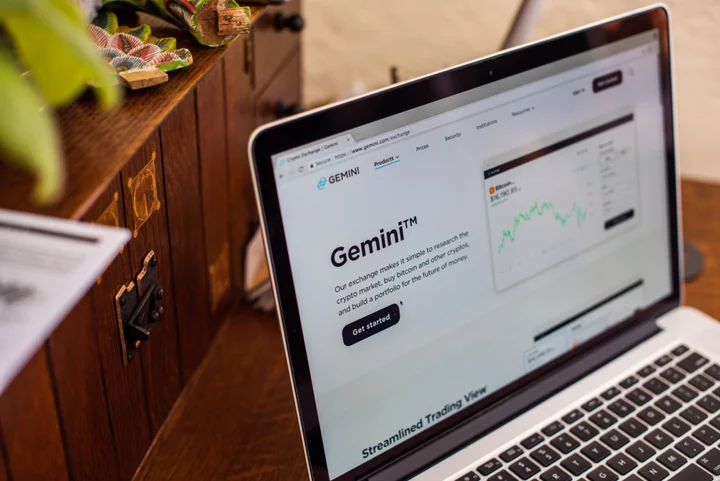
Winklevoss’s Gemini Crypto Exchange Sues DCG, CEO Barry Silbert
Gemini Trust Co., the digital-asset exchange founded by the billionaire Winklevoss brothers, filed a lawsuit against Digital Currency
2023-07-07 23:13
You Might Like...

Scientists weren't expecting what they found when they opened up the Bennu asteroid capsule

Three dead in Greece wildfires as firefighters battle the flames

Scientists discover why a huge gravity hole has opened in the Indian ocean

Broadcom Suffers Sales Slowdown, Even as It Points to AI Gains

Short Sellers Mount Attack on ESG Stocks Bloated From Green Hype

Australia to form rapid cyber assist teams for Pacific Islands

Mastercard helping banks predict scams before money leaves customers’ accounts

UK Tightens Online Safety Bill Again as It Nears Final Approval
